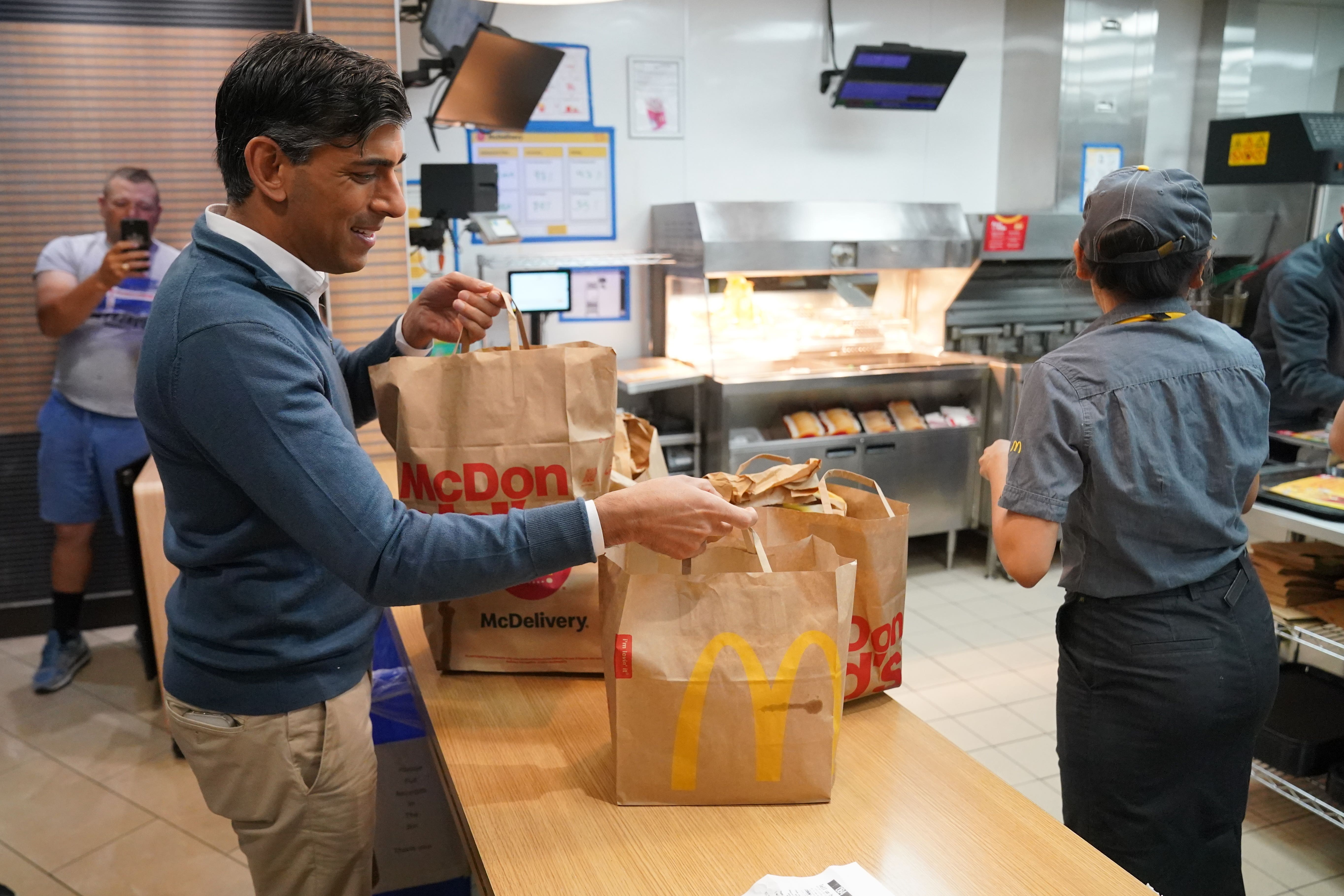No, Kemi – working in McDonald’s doesn’t make you working class
Is the Tory MP right to say that working at the fast food chain is enough to make a middle-class person humble? Ryan Coogan doesn’t think so


The biggest problem with being working class in this country is that nobody can agree on what the term “working class” actually means (well… maybe it’s the second biggest, behind being poor). Some people think that liking football and having a regional accent is all it takes, while others will gently point out that not having a lot of money tends to be a fairly key component of the lifestyle.
It’s a thorny issue – and one which we pride ourselves on strenuously avoiding in this country. So it’s no surprise that when former minister for women and equalities, Kemi Badenoch, told Christopher Hope during an interview on his podcast that she “became working class” when she started working in McDonald’s at 16, it raised eyebrows right across the social divide. One baffled Twitter/X user wrote “she’s more bonkers than I thought”, while another simply posted the lyrics to “Common People” by Pulp.
For reference, Badenoch’s parents are a GP and a professor of physiology, respectively. She admits in the same interview that she “grew up in a middle-class family”, so clearly she isn’t totally lacking in self-awareness – but then she also seems to think that you can magically change your social class if you sling enough egg and cheese McMuffins, so I suppose the jury’s still out.
To be fair to Badenoch, the claim isn’t totally ludicrous. She has previously said she had a fairly comfortable upbringing in Nigeria, but due to the country’s deteriorating political situation, was forced to move to the UK when she was a teenager. She worked at McDonald’s, among other jobs, to support herself during her A-levels, so it’s not like she floated through life on a cloud made of spun gold and nepotism.
To be unfair to Badenoch, she was a member of a government that made life measurably worse for working class people in this country by punishing benefit claimants for the crime of being poor, raising tuition fees to keep their kids out of university and generally wrecking the economy to the point that her old McDonald’s job is now aspirational for a lot of people. She hasn’t really earned the benefit of the doubt – and if she had it would probably be taken away by Jobseekers.
The real issue here is that class is such a nebulous concept that it’s impossible to pin down in any useful way, but at the same time it’s such a defining part of people’s lives and characters in the UK that everybody has an opinion on it.
I grew up on a council estate in Salford, with a single parent on benefits. I went to a school that was constantly in special measures and at one point was ranked worst in the country. My mum still lives there, working a night job that just about keeps her head above water.
I am, by any metric, working class. But when I visit home, I get teased for being “posh” and “forgetting my roots”. Why? Well, I have a degree, and I work for a newspaper in London. Never mind that I’m still living paycheque to paycheque – and if I were to lose this job I’d be about three months away from landing right back on that estate, because I don’t have any kind of social safety net to land on if things go south.
I remember going home one Christmas right after graduating and receiving some real hostility from people I grew up with because of my university education and supposed class betrayal. Never mind that I was working in a school kitchen for less than £600 a month and couldn’t land a better job to save my life – I even tried applying to McDonald’s, ironically, but they wouldn’t take me (I’d like to think it was because I was overqualified).
Meanwhile, my old mates were all pulling down real money in jobs they’d had since they’d left school. The cash wasn’t the point – the BA was all that mattered to them.
I got it in school, too. I didn’t like football growing up – and to some of my peers that alone was enough to make me a class traitor. If that sounds absurdly reductive to you, join the club, but remember that the kids saying this had parents who were on the bread line, so I guess they’d know.
It cuts both ways, too. I have friends who call themselves working class, but I always balk at the idea because, no, working class means poor; constant struggle; drug dealers in the family. Do you even know any car thieves, you poser? How dare you identify as working class, with your two parents and your mortgage. Who cares if your mum’s a cleaner and your dad’s a builder? That’s lower-middle class at worst, surely. I’d have killed for that upbringing.
It’s a recipe for misunderstanding, resentment and confusion – and it probably isn’t going to change any time soon. Class discrimination is perfectly legal in this country – God knows I’ve experienced my fair share, living here in the Big Smoke. What’s the point in having all of these difficult conversations when you aren’t legally required to? Best to just do what we do best in England – keep our heads down and pretend it isn’t a problem.
But it is a problem. And it’s not just about hurt feelings and name-calling. Class is the spectre that looms over every single thing we do here. It informs who we employ, who we put on TV and who we elect to parliament. We’ve covered a huge amount of ground on issues like race and sexuality over the course of my life – all vitally important, necessary steps – but we’ve completely stalled on class and don’t seem in any rush to check the engine.
Badenoch’s statement might seem ludicrous, but the fact is that our understanding of class in this country is so muddled that it’s impossible to say whether or not it actually is. Maybe you can change your class by working at McDonald’s, or getting a degree you can’t use, or getting really into football. We’ll never really know until we start actually talking this stuff out – and if we don’t, people like Kemi will happily do it for us.
Join our commenting forum
Join thought-provoking conversations, follow other Independent readers and see their replies
Comments
Bookmark popover
Removed from bookmarks